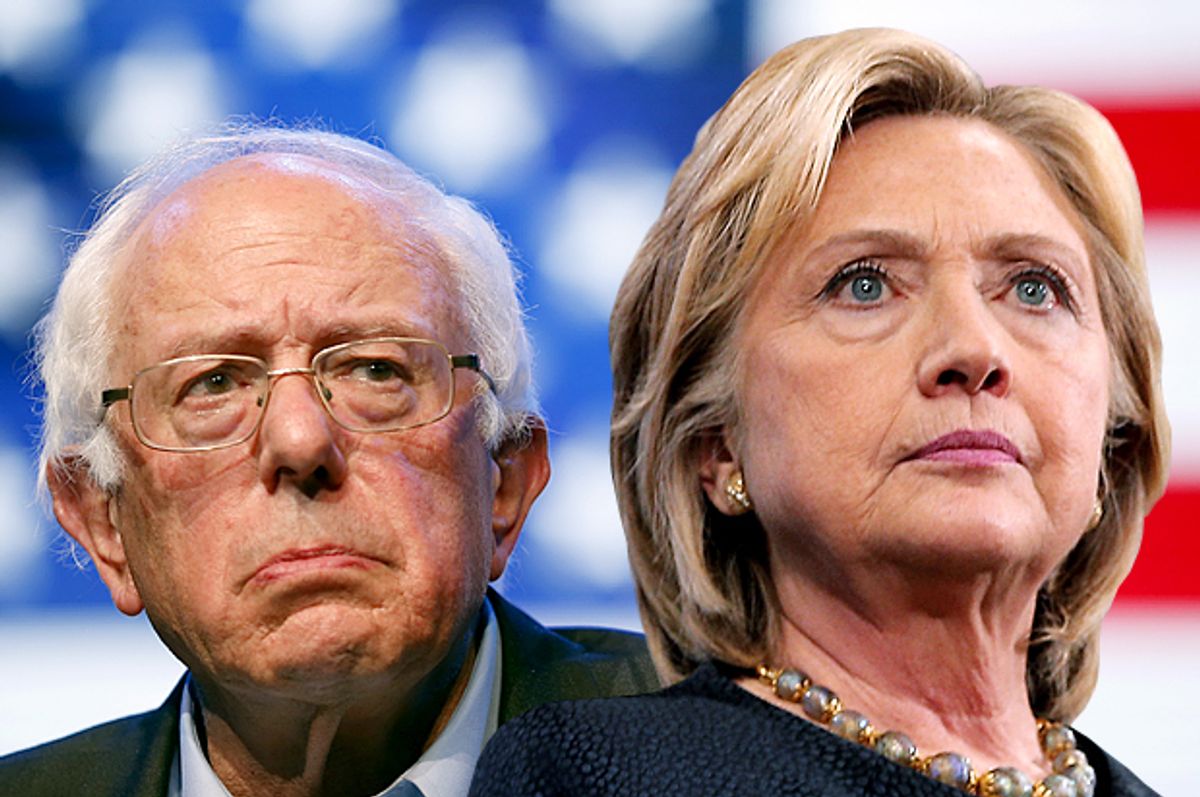Bernie Sanders has spent most of his time talking about economic injustice and political corruption. And that’s exactly what he should do: These issues have animated his political life for nearly half a century, and his voice is strongest and most authentic when he’s engaging them.
But it’s time for Bernie to broaden his platform beyond domestic concerns. His economic populism will always be the central theme of his campaign, and for obvious reasons. But this is a real race now, and if Sanders has a perceived weakness, it’s on the foreign policy front.
In a worthwhile piece at the “The Week,” Ryan Cooper explained why Sanders has to expand his worldview:
“When he was trailing by 50 points as a de facto protest candidate, his laser-like focus on economic inequality and plutocrats’ control of the democratic process was perfectly reasonable. But now that he’s nearly tied with Clinton in national polls, he needs to start bulking out his overall political worldview – particularly on foreign policy. He’s got a sketch of some decent ideas, saying that the U.S. should be ‘tough but not stupid’ in defeating ISIS, but so far it’s been hesitant and rather haphazard, often talking around questions about withdrawing from Afghanistan and what to do about North Korea.”
Generally speaking, Cooper is right: foreign policy simply hasn’t been a priority for Sanders. However, Sanders has done more than sketch out a few basic ideas. In a widely underreported speech at Georgetown University in November, Sanders spoke at length about ISIS and America’s history of adventurism in the Middle East. His remarks were as honest as they were refreshing:
“Our response must begin with an understanding of past mistakes and missteps in our previous approaches to foreign policy. It begins with the acknowledgement that unilateral military action should be a last resort…and that ill-conceived military decisions, such as the invasion of Iraq, can wreak far-reaching devastation and destabilize entire regions for decades. It begins with the reflection that the failed policy decisions of the past – rushing to war, regime change in Iraq, or toppling Mossadegh in Iran in 1953, or Guatemalan President Arbenz in 1954, Brazilian President Goulart in 1964, Chilean President Allende in 1973. These are the sort of policies that do not work, do not make us safer, and must not be repeated.”
This is an excellent foundation for a sensible foreign policy, the kind of foreign policy the Democratic Party needs. Thus far Clinton has benefited from Sanders economic-centric campaign, and that’s precisely why Sanders has to pivot to foreign policy. Clinton is seen as more experienced in this domain, but that doesn’t quite tell the whole story. Yes, Clinton has been more involved in foreign policy over the years. Sanders, however, has to make this a question of judgment, not experience.
Clinton’s foreign policy record is replete with errors and capitulations to the war machine. Sanders focuses on Clinton’s support for the Iraq War, as he should, but there’s much more than that. Jeffrey Sachs recent column does a nice job of dismantling the argument that Clinton’s strength is national security: “She [Clinton] is the candidate of the military-industrial complex. The idea that she is bad on the corporate issues but good on national security has it wrong. Her so-called foreign policy ‘experience’ has been to support every war demanded by the US deep security state run by the military and the CIA.” From Kosovo to Libya to Syria and Iraq, Clinton has aligned herself with hawks and neoconservatives. Clinton is more than capable of defending her record, but rarely is she made to.
Sanders, in other words, has an opening he’s yet to exploit. Poor and working-class Americans have disproportionately suffered on account of our failed foreign policies, policies supported by Clinton and most of the Washington establishment. Our infrastructure is crumbling and we haven’t invested in the middle class because so much of our resources have been diverted to interminable quagmires in Iraq, Afghanistan and elsewhere.
Sanders's message is that we need to nation-build at home, not abroad. As Cooper points out, “the president’s freedom of action is vastly larger on foreign policy,” and that means a shift in philosophy here really matters. The more Sanders can connect domestic crises to foreign policy excesses, the more compelling his candidacy will be.


Shares